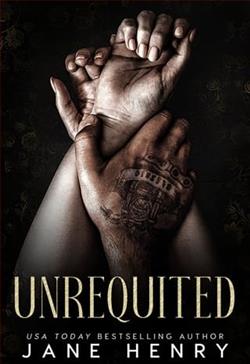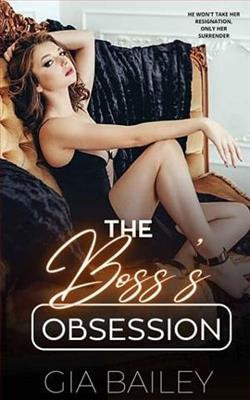Page 34 of Garden of Lies
“Mmm. Perhaps. But I don’t think that is the only reason why you do not let the Websters and the others go.”
“No?” His brows rose. “I can’t think of a better reason.”
“You don’t dismiss your servants because you have some sympathy for them. If they end up here on your doorstep it is because your mother has sent them to apply for a post. If you don’t take them in and give them work until the next role comes along, some of them—particularly the women—will end up on the street. And some will not survive at all.”
“I’m a charity house for unemployed theater people?” He winced. “Is that what you’re saying?”
“That seems to be the case. As charities go, it seems a fine one. It is certainly one of the reasons I agreed to take the position with you back at the start of this arrangement.”
He pinned her with a look.
“And then you quit,” he said very softly.
“Yes, well, it was not my intention. And I did hope to return.”
“Did you?”
“May I ask what sort of... eccentricities you possess that you feel would likely put off potential applicants for posts here in this house?”
He released the chair, widening his hands. “Do you have any idea how hard it is to find a cook who will serve vegetarian fare at every meal?”
Ursula blinked, caught entirely off guard. She tried to stifle a giggle but failed.
“Good heavens,” she said in mock horror. “You’re one of those? A vegetarian?”
He seemed disgruntled by her teasing, as though not quite certain what to make of it. He took off his glasses, whipped out a pristine white handkerchief and began to polish the lenses.
“Is that really so strange?” he demanded. “There is no need to look at me as though I had grown a second head or turned green.”
She smiled. “Sorry. Your answer was not quite what I was expecting, that’s all.”
He paused in the act of polishing the spectacles. His startling eyes locked with hers. Once again she wondered why he bothered with eyeglasses.
“What sort of eccentricity were you expecting me to admit to?” he asked.
She waved a hand in an airy manner, aware that she was starting to enjoy herself.
“There have been some rather bizarre speculations in the press,” she said. “I was inclined to dismiss them, of course, but when you mentioned that potential staff might be put off by your eccentricities, I did wonder precisely what you meant. Rest assured that vegetarianism was not the first thing that came to mind.”
He started to put on his spectacles. Then, very deliberately, he set them on the desk. For the first time there was a glint of amusement in his eyes.
“Why don’t you take a seat, Mrs. Kern, and tell me exactly what sort of eccentricities popped into your mind?” he said.
She had known that it would be a mistake to tease him about the vegetarianism. She did not know what had come over her. For whatever reason, making the small, lighthearted comment had been irresistible. But she should have heeded her intuition that had warned her that any conversation of a personal nature was a high-risk venture with this man.
She sat down on a chair and tweaked the folds of her skirts, aware that she was a bit flushed. “I think perhaps we should change the subject.”
“This may come as a shock to you, but I also read the press,” Slater said. “I believe there is some concern in certain quarters that I have a secret chamber here in my house and that I have forbidden the servants to enter it.”
“Oh, dear. You know about that nonsense, do you? I assure you I put no credence in the story.”
“Evidently there are some who are convinced that I lure unsuspecting females into my secret chamber and practice the odd exotic ritual upon their persons.”
“The definition of an exotic ritual is in the eye of the beholder, isn’t it?”
“Do you think so?” Slater asked.
“As far as I’m concerned, the necessity of wearing fashionable gowns that feel like a suit of armor and weigh approximately the same, with skirts so heavy and voluminous that they make the simple act of walking a difficult endeavor, is an exotic ritual. Yet ladies here in London do it every day.” Ursula paused for emphasis. “Including me.”















